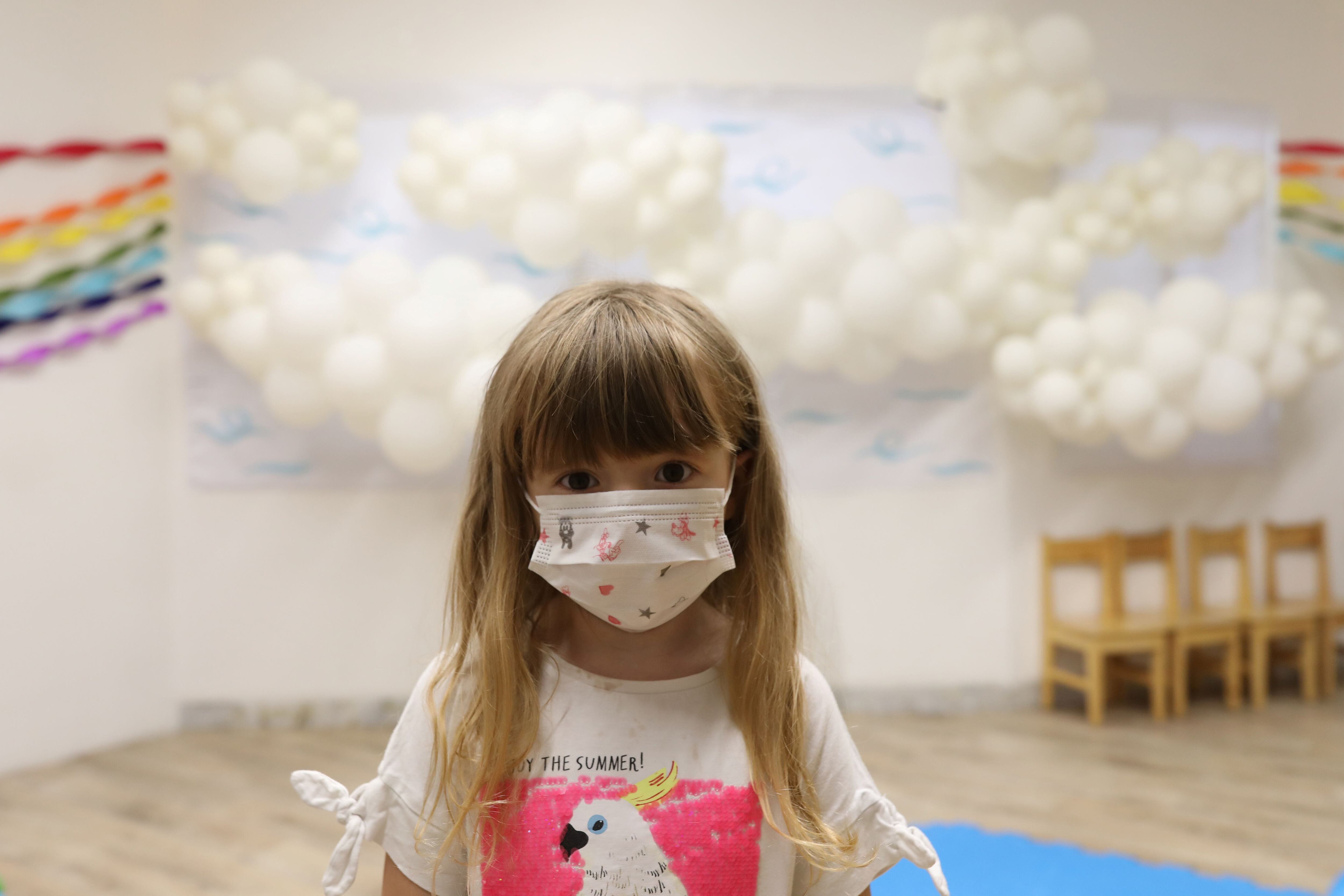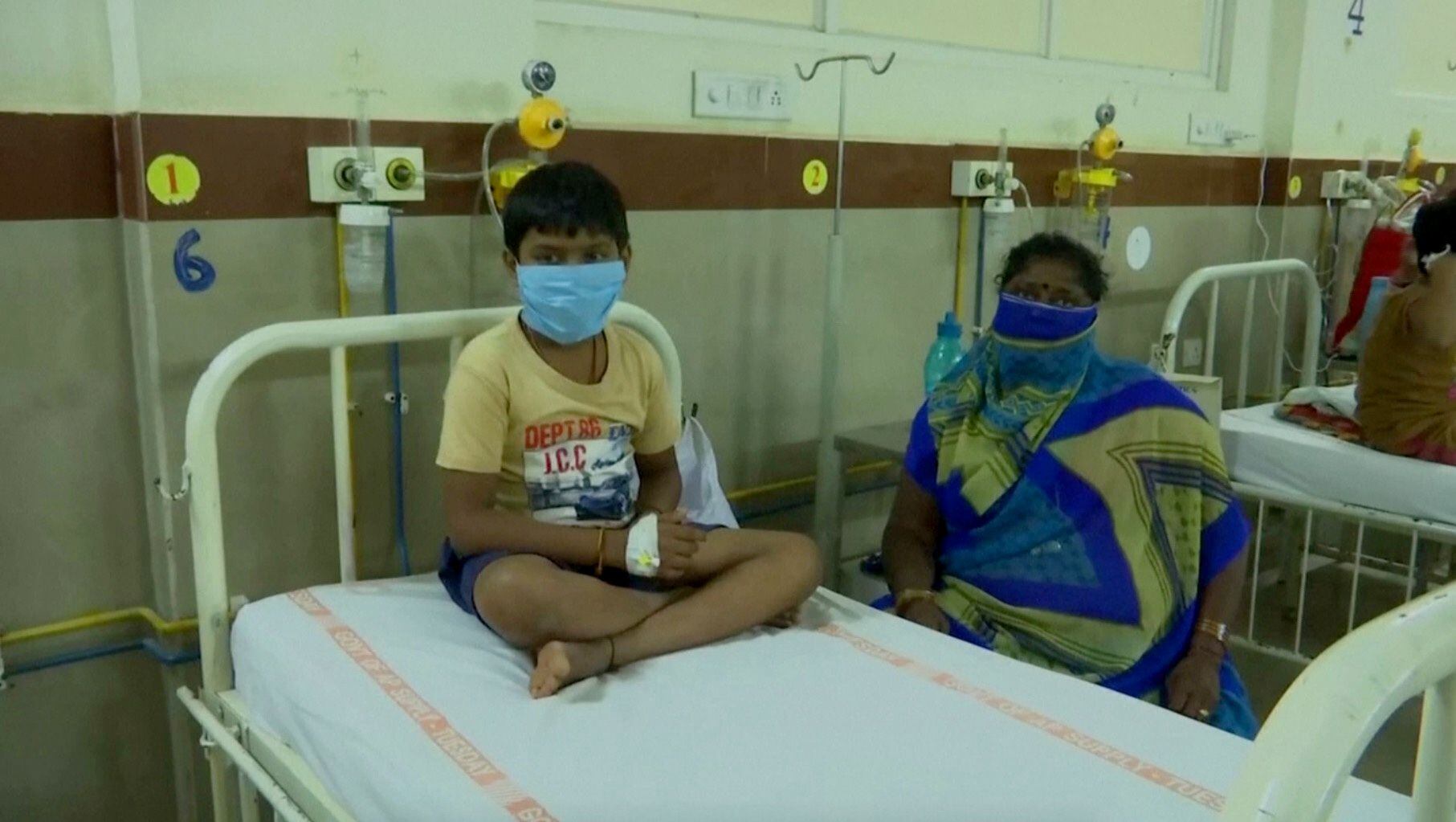
With the coronavirus pandemic installed more than two years ago, scientific studies do not cease as infections also grow in various parts of the world.
A new research on minors showed that they are the population with the lowest risk of re-infection once they have transited the COVID-19 disease. And he found that re-infections were not associated with a more serious illness or fatal outcome.
According to British scientists who conducted research funded by the United Kingdom Health Security Agency, SARS-CoV-2 re-infections are rare in children, especially in young children, and occurred mainly during the Delta wave in England.

“Re-infections were not associated with a more serious illness or fatal outcome in children. Vaccination against COVID-19 provides greater protection against primary infections and re-infections in this population. In addition, they were not associated with serious illness in terms of hospitalization or admission to intensive care, and there were no deaths within 28 days after the episode of re-infection in children,” said doctors Anna A. Mensah and Helen Campbell in the investigation. published in The Lancet.
The authors of the study stated that children live with families or guardians and their attendance at school and participation in society are crucial for their development. It is important to consider the indirect effects of the pandemic on children, including the impact of COVID-19 on family members, schooling and mental health. “Therefore, understanding the risk of re-infection in children is paramount, including the study's finding that the rate of re-infection was lower in those who still cannot access a vaccine in most countries,” they added.
In children aged 16 years and younger, 688,418 primary infections and 2343 re-infections were identified. The overall rate of re-infection was 66.88 per 100,000 inhabitants, higher in adults (72.53 per 100,000) than in children (21.53 per 100,000). The rate of re-infection after primary infection was 0.68% overall, 0.73% in adults compared to 0.18% in children under 5 years old, 0.24% in children aged 5 to 11 years and 0.49% in those aged 12 to 16 years. Of the 109 children admitted to hospital with re-infection, 78 (72%) had comorbidities.

The methodology used in the study establishes a framework for reviewing the effect of vaccines on re-infection by age group, noting that countries such as Australia, Canada and the US have started a program of mRNA vaccination in children aged 5 to 11 years, as did the United Kingdom according to the advice of the Joint Committee on Vaccination and Immunization (JCVI) on February 16, 2022.
The study's finding that re-infection may not have been the reason for hospitalization (i.e. patients could have been admitted to the hospital with COVID-19, not because of COVID-19) is not unexpected. The medical history of pediatric readmission cases requires a detailed review of the underlying comorbidities and the final diagnoses of ICD-10.
“However, severe symptoms of COVID-19 are more common in people with a medical history; in the study, the four children who had been admitted to an intensive care unit (ICU) after re-infection also required intensive care during their primary infection. All four children had multiple and severe multisystem comorbidities and the authors were unable to determine the contribution of SARS-CoV-2 infection to the disease that ultimately led to admission to the ICU,” the specialists said.

A key finding from the study by Mensah and colleagues is that re-infection with SARS-CoV-2 was not associated with fatal pediatric cases. One potential area for future research is the role that rapid antigen testing could play in identifying cases of re-infection, especially since many countries have introduced routine screening tests (e.g., in schools). Many of these cases of re-infection will be asymptomatic, so it will be important to monitor their role in transmission at the home, school and community levels, particularly if new variants of concern arise.
Finally, it will be important to investigate the role that multiple reinfections will play in the immune system of vaccinated people, with a particular focus on the development of the immune memory of B cells and T cells.
“The interaction between infection and vaccine will be crucial throughout 2022 and 2023 and will hopefully optimize protection throughout the life course and minimize the risk of re-infection (particularly that associated with serious illness), hospital admission, intensive care and death,” the experts concluded.
KEEP READING:
Últimas Noticias
Debanhi Escobar: they secured the motel where she was found lifeless in a cistern
Members of the Specialized Prosecutor's Office in Nuevo León secured the Nueva Castilla Motel as part of the investigations into the case

The oldest person in the world died at the age of 119
Kane Tanaka lived in Japan. She was born six months earlier than George Orwell, the same year that the Wright brothers first flew, and Marie Curie became the first woman to win a Nobel Prize

Macabre find in CDMX: they left a body bagged and tied in a taxi
The body was left in the back seats of the car. It was covered with black bags and tied with industrial tape
The eagles of America will face Manchester City in a duel of legends. Here are the details
The top Mexican football champion will play a match with Pep Guardiola's squad in the Lone Star Cup

Why is it good to bring dogs out to know the world when they are puppies
A so-called protection against the spread of diseases threatens the integral development of dogs


